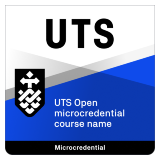In order to pass this course, participants must complete both assessment tasks and achieve an overall mark of 50 and above (minimum Pass). The weighting for each assessment task is indicated in brackets.
Assessment task 1: Online Tasks Participation and Quizzes - Individual (Weight: 40%)
Online Tasks Participation 20%
Quizzes 20%
The online applied short task will be worth 20% graded on the following two criteria:
- Synthesise the real case and demonstrate application of theoretical concepts on management capabilities in practice
- Critique on the case and suggest optional scenarios of what could have been alternatively done and why?
The quiz will be worth 20% and is graded on the following two criteria:
- Accuracy of multiple-choice answers
- Quality of analysis for answers to short-answer questions
Assessment task 2: Assignment -Individual (Weight: 60%)
Assignment 50%
Presentation 50%
Length of the assignment: The expected length of the report is 3000 words excluding the cover sheet, references, appendices and the survey instrument.
Online presentation: Roughly 6 PowerPoint slides and 15 minutes in duration.
Students will produce a written report detailing their findings, which will be graded according to the following criteria:
- Scope and depth of the analysis of the ‘ordinary management capabilities and ‘dynamic management capabilities’ of the firm in light of the strategic intent (in report firm and e-presentation).
- Design of the evaluation tool for a company’s overall management and organisational capabilities based on the strategic intent, and self-assessment of managers own dynamic capabilities.
- Identification of the challenges and policy implications imposed by ‘dynamic management capabilities’ and ‘dynamic managerial capabilities’ on human capital, firm performance and economic growth.


















